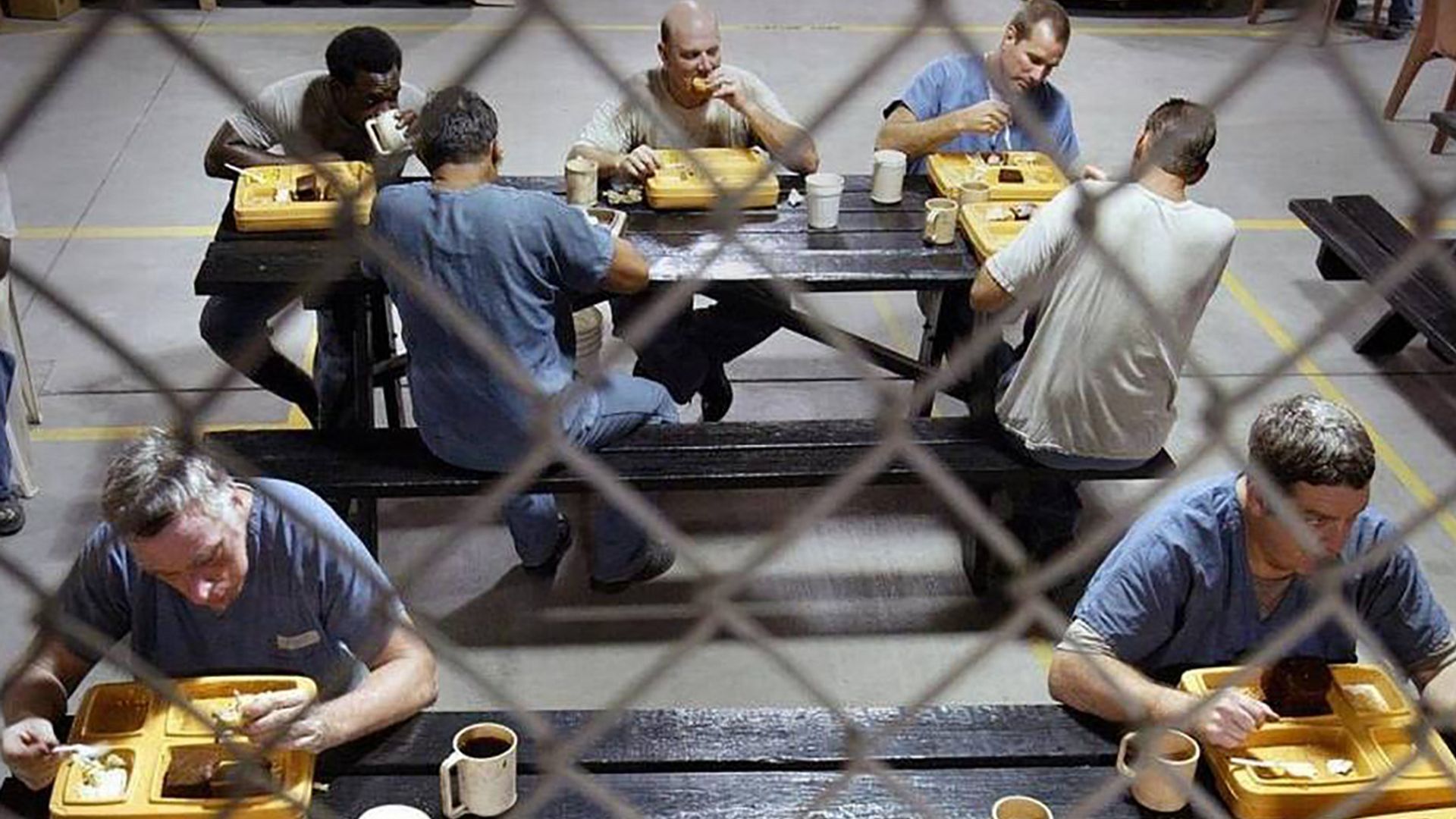
Forced prison labor will stay in California after ballot measure fails
By Lauren Taylor (Anchor), Mathew Grisham (Producer), Bast Bramhall (Video Editor)
Californians rejected a state ballot initiative in which would have eliminated involuntary servitude for those serving prison sentences. Nearly 54% of voters rejected Proposition 6. The Associated Press reported that 72% of the vote has been counted so far.
Media Landscape
This story is a Media Miss by the right as only 4% of the coverage is from right leaning media. Learn moreBias Distribution
Left
Right
Right
Untracked Bias
Some residents refer to the conditions in the state’s prisons as modern-day slavery or forced labor.
Jobs given to prisoners may net them less than $1 an hour. Declining these jobs can even reportedly cause delays in parole eligibility or other severe consequences.

Download the SAN app today to stay up-to-date with Unbiased. Straight Facts™.
Point phone camera here
Instead of involuntary work assignments, Proposition 6 would have encouraged prisons to set up a volunteer work assignment program, taking time off sentences in the form of credits. Cities and counties would have also been encouraged to set up pay scales for inmates.
This proposition wasn’t the only reform initiative in front of voters on Election Day. Proposition 36, the “tough-on-crime” measure, voters overwhelmingly backed the legislation, passing with nearly 70% of voter’s support.
According to the California Legislative Analyst’s Office, Proposition 36 will change a number of things in the state. Some misdemeanors will become felonies for those with past convictions. The proposal will also lengthen some felony sentences, like theft or damage of property and some felonies are now required to be served in prison, such as sentences for selling certain drugs.
Get up to speed on the stories leading the day every weekday morning. Sign up for the newsletter today!
Learn more about our emails. Unsubscribe anytime.
By entering your email, you agree to the Terms & Conditions and acknowledge the Privacy Policy.
Advocates for Proposition 6 said voters were not educated enough about the measure and had a hard time separating it from Proposition 36. California would have joined 15 other states which have already closed forced labor loopholes.
Nevada voted to close the a loophole, with around 60% of voters supporting the measure on Election Day in 2024. It removed language from the state’s constitution, which allowed slavery and indentured servitude as a type of punishment.
[Lauren Taylor]
CALIFORNIANS HAVE REJECTED A BALLOT INITIATIVE THAT WOULD HAVE ELIMINATED INVOLUNTARY SERVITUDE FOR THOSE SERVING PRISON SENTENCES.
NEARLY 54 PERCENT OF VOTERS REJECTED THE MEASURE, KNOWN AS PROPOSITION 6 WITH 72 PERCENT OF THE VOTES COUNTED SO FAR.
THAT’S ACCORDING TO THE A-P.
SOME IN THE STATE CALL THIS SERVITUDE MODERN DAY SLAVERY, WITH JOBS GIVEN TO PRISONERS THAT MAY NET THEM LESS THAN A DOLLAR AN HOUR.
DECLINING THE JOBS CAN EVEN REPORTEDLY CAUSE DELAYS IN PAROLE ELIGIBILITY, OR OTHER SEVERE CONSEQUENCES.
INSTEAD OF INVOLUNTARY WORK ASSIGNMENTS, PRISONS WOULD HAVE BEEN ENCOURAGED TO SET UP A VOLUNTEER WORK ASSIGNMENT PROGRAM, TAKING TIME OFF SENTENCES IN THE FORM OF CREDITS.
CITIES AND COUNTIES WOULD HAVE ALSO BEEN ENCOURAGED TO SET UP PAY SCALES FOR INMATES.
ON THE FLIP SIDE, THE STATE APPROVED A “TOUGH-ON-CRIME” MEASURE, PROPOSITION 36.
THIS PIECE OF LEGISLATION INCREASES PENALTIES FOR CRIMES, AND GARNERED NEARLY 70 PERCENT OF VOTERS SUPPORT.
ACCORDING TO THE CALIFORNIA LEGISLATIVE ANALYST’S OFFICE, PROPOSITION 36 TURNS SOME MISDEMEANORS INTO FELONIES FOR THOSE WITH PAST CONVICTIONS.
IT LENGTHENS SOME FELONY SENTENCES, SUCH AS FOR THEFT AND DAMAGE OF PROPERTY.
AND SOME FELONIES ARE NOW REQUIRED TO BE SERVED IN PRISON, SUCH AS SENTENCES FOR SELLING CERTAIN DRUGS.
SOME ADVOCATES FOR PROPOSITION 6 SAY VOTERS WERE NOT EDUCATED ENOUGH ABOUT THE MEASURE, AND HAD A HARD TIME SEPARATING IT FROM PROPOSITION 36.
THE GOLDEN STATE WOULD HAVE JOINED 15 OTHER STATES WHICH HAVE ALREADY CLOSED FORCED LABOR LOOPHOLES.
FOR SAN, I’M L.T.
Media Landscape
This story is a Media Miss by the right as only 4% of the coverage is from right leaning media. Learn moreBias Distribution
Left
Right
Right
Untracked Bias
Straight to your inbox.
By entering your email, you agree to the Terms & Conditions and acknowledge the Privacy Policy.
MOST POPULAR
-
 Getty Images
Getty Images
Judge allows CNN lawsuit potentially worth billions to continue
Read17 hrs ago -
 Reuters
Reuters
It’s a bird, it’s a plane, it’s the first video of Alef Aeronautics’ flying car
Watch 2:1318 hrs ago -
 Getty Images
Getty Images
Democrats in Congress receive lowest approval rating in Quinnipiac poll history
Watch 2:5919 hrs ago -
 Getty Images
Getty Images
AG Bondi reviewing Epstein documents for release, could hold client list
Watch 1:4820 hrs ago




